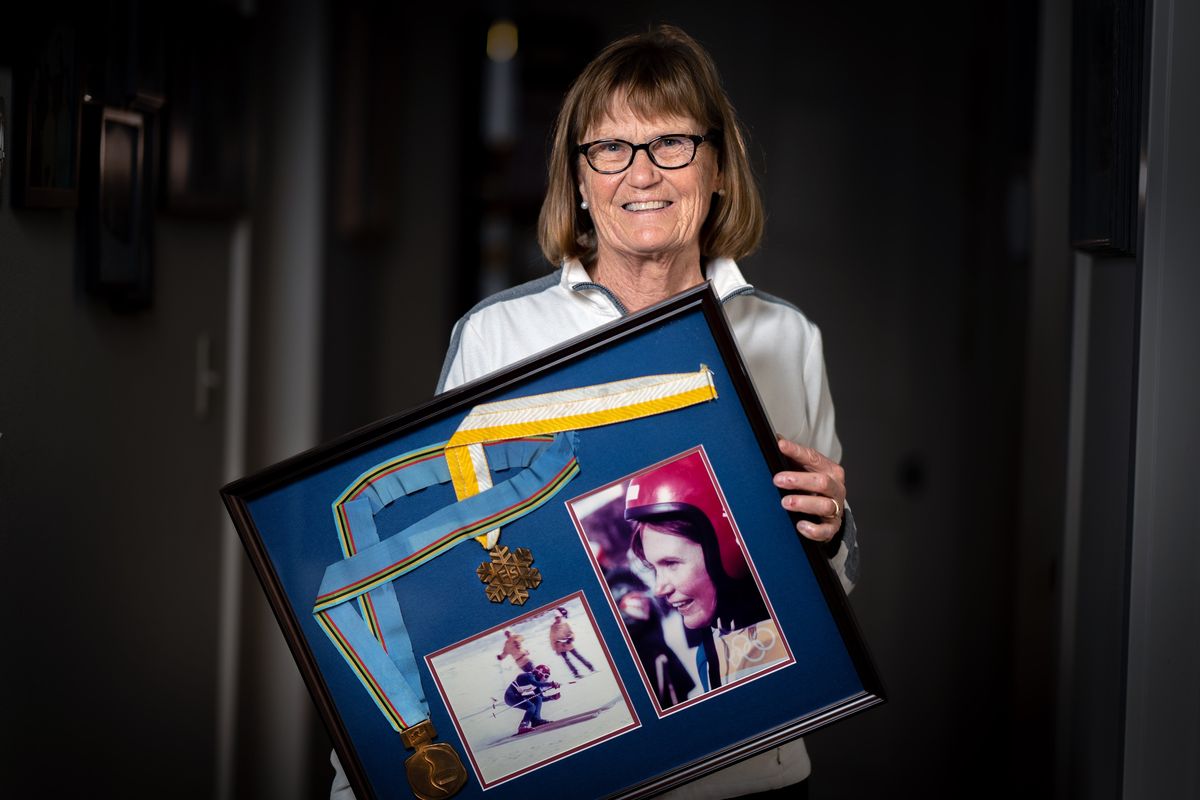Local Olympian Susan Corrock Luby reminisces on her bronze win 50 years later: ‘I was a dark horse; I wasn’t expected to win’

What started as a family sport for Susie Luby turned into much more when she competed at the 1972 Winter Olympics in Sapporo, Japan, coming home with a bronze medal in downhill skiing.
Now, 50 years later, Luby, 70, looks back on that time with fond memories as the 2022 Winter Olympic Games begin in Beijing.
A Seattle native, Luby began skiing when she was about 5 years old with her parents and siblings.
“It’s a family sport for us,” Luby said. “I certainly did not start skiing with an eye on the Olympics.”
She started racing, along with her siblings, when she was 11.
“I obviously had some skill, and I just continued to kind of climb the ladder,” Luby said.
Through her local results, Luby, then Susie Corrock, made her way to the United States Ski Team when she was 16 and then competed in the World Cup at 18; by 20, she had made the Olympic team ahead of Sapporo.
The Olympics were different back then, Luby said.
There were just 35 events; now, there are 109. Luby competed with just over 1,000 other athletes; now, there are more than 2,800 people who compete.
With fewer events, the games were shorter, too, lasting just 11 days compared to the 16 official days of the 2022 Olympics, with some events starting before the opening ceremony.
Title IX, which prohibits federally funded educational institutions from discriminating based on sex and bolstered women’s sports, had yet to pass in the United States.
Women made up just 20% of competitors at the Sapporo games. The 2022 Beijing Olympics are the most gender-balanced games to date with about 45% of competitors being female, according to the Olympics website.
Those numbers just “show the difference of what it was then versus now,” Luby said. The games were televised, but athletes weren’t the celebrities they are today, Luby said.
“It’s looked at probably in a different way,” Luby said.
The opening ceremony wasn’t what it is now either.
“It was kind of like walking into Joe Albi Stadium versus what it is today,” Luby said with a chuckle.
She went into the games with the goal of skiing her absolute best, Luby said.
“I knew what I was capable of,” Luby said. “I wanted to have the very best race that I could have.”
And she did it, placing third.
At the time, Luby said she felt “dazed” and “proud.”
“I would say that it means a whole lot more to me now than it did then,” Luby said.
Back in ’72, the win was followed with thoughts of her future, the next big challenge, Luby said.
“I was a dark horse; I wasn’t expected to win,” Luby said. “My next thought was, what am I going to do with my life?”
She skied competitively for another year before turning to the freestyle circuit. She was inducted into the U.S. Ski and Snowboard Hall of Fame in 1976.
Eventually she married, moved to Spokane, had children and turned to a career in real estate. Her bronze medal sat in a shoe box at the back of a closet for years, Luby said.
But now, the medal has found its way into a frame, and the memory is a fond one.
“It was something that I accomplished, but I didn’t want it to define me,” Luby said. “The older that I get, the more I can look back at that accomplishment and feel proud.”
For competitors in Beijing this year, Luby said it’s important to “trust yourself.”
For many children, the Olympics are the start of a dream to compete one day themselves. Luby said that “love for your sport” is the key to making it all the way.
Alpine skier Mikaela Shiffrin is a good example of that, Luby said.
“What I see of her and her skill, she has been so dedicated to her sport and to being the best at her sport, and that comes from a true love of the sport in my mind,” Luby said. “Find something that you love to do and do it.”